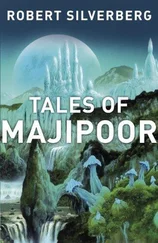Robert Silverberg - Born with the Dead
Здесь есть возможность читать онлайн «Robert Silverberg - Born with the Dead» весь текст электронной книги совершенно бесплатно (целиком полную версию без сокращений). В некоторых случаях можно слушать аудио, скачать через торрент в формате fb2 и присутствует краткое содержание. Год выпуска: 2009, ISBN: 2009, Издательство: Subterranean Press, Жанр: Фантастика и фэнтези, на английском языке. Описание произведения, (предисловие) а так же отзывы посетителей доступны на портале библиотеки ЛибКат.
- Название:Born with the Dead
- Автор:
- Издательство:Subterranean Press
- Жанр:
- Год:2009
- ISBN:978-1-59606-212-2
- Рейтинг книги:5 / 5. Голосов: 1
-
Избранное:Добавить в избранное
- Отзывы:
-
Ваша оценка:
- 100
- 1
- 2
- 3
- 4
- 5
Born with the Dead: краткое содержание, описание и аннотация
Предлагаем к чтению аннотацию, описание, краткое содержание или предисловие (зависит от того, что написал сам автор книги «Born with the Dead»). Если вы не нашли необходимую информацию о книге — напишите в комментариях, мы постараемся отыскать её.
Born with the Dead — читать онлайн бесплатно полную книгу (весь текст) целиком
Ниже представлен текст книги, разбитый по страницам. Система сохранения места последней прочитанной страницы, позволяет с удобством читать онлайн бесплатно книгу «Born with the Dead», без необходимости каждый раз заново искать на чём Вы остановились. Поставьте закладку, и сможете в любой момент перейти на страницу, на которой закончили чтение.
Интервал:
Закладка:
“Is she in town?” Klein blurted.
Mortimer and Nerita exchanged sly glances. Klein felt abashed. Never ask a direct question. Damn Dolorosa!
Nerita said, “You’ll see her before long. Shall we go to dinner?”
The commissary was less austere than Klein had expected: actually quite an inviting restaurant, elaborately constructed on five or six levels divided by lustrous dark hangings into small, secluded dining areas. It had the warm, rich look of a tropical resort.
But the food, which came automat-style out of revolving dispensers, was prefabricated and cheerless—another jarring contradiction. Only a joke, friend, only a joke. In any case he was less hungry than he had imagined at the hotel. He sat with Mortimer and Nerita, picking at his meal, while their conversation flowed past him at several times the speed of thought. They spoke in fragments and ellipses, in periphrastics and aposiopeses, in a style abundant in chiasmus, metonymy, meiosis, oxymoron, and zeugma; their dazzling rhetorical techniques left him baffled and uncomfortable, which beyond much doubt was their intention. Now and again they would dart from a thicket of indirection to skewer him with a quick corroborative stab: Isn’t that so, they would say, and he would smile and nod, nod and smile, saying, Yes, yes, absolutely. Did they know he was a fake, and were they merely playing with him, or had they, somehow, impossibly, accepted him as one of them? So subtle was their style that he could not tell. A very new member of the society of the rekindled, he told himself, would be nearly as much at sea here as a warm in deadface.
Then Nerita said—no verbal games, this time—“You still miss her terribly, don’t you?”
“I do. Some things evidently never perish.”
“Everything perishes,” Mortimer said. “The dodo, the aurochs, the Holy Roman Empire, the T’ang Dynasty, the walls of Byzantium, the language of Mohenjo-daro.”
“But not the Great Pyramid, the Yangtze, the coelacanth, or the skullcap of Pithecanthropus,” Klein countered. “Some things persist and endure. And some can be regenerated. Lost languages have been deciphered. I believe the dodo and the aurochs are hunted in a certain African park in this very era.”
“Replicas,” Mortimer said.
“Convincing replicas. Simulations as good as the original.”
“Is that what you want?” Nerita asked.
“I want what’s possible to have.”
“A convincing replica of lost love?”
“I might be willing to settle for five minutes of conversation with her.”
“You’ll have it. Not tonight. See? There she is. But don’t bother her now.” Nerita nodded across the gulf in the center of the restaurant; on the far side, three levels up from where they sat, Sybille and Kent Zacharias had appeared. They stood for a brief while at the edge of their dining alcove, staring blandly and emotionlessly into the restaurant’s central well. Klein felt a muscle jerking uncontrollably in his cheek, a damning revelation of undeadlike uncoolness, and pressed his hand over it, so that it twanged and throbbed against his palm. She was like a goddess up there, manifesting herself in her sanctum to her worshipers, a pale shimmering figure, more beautiful even than she had become to him through the anguished enhancements of memory, and it seemed impossible to him that that being had ever been his wife, that he had known her when her eyes were puffy and reddened from a night of study, that he had looked down at her face as they made love and had seen her lips pull back in that spasm of ecstasy that is so close to a grimace of pain, that he had known her crochety and unkind in her illness, short-tempered and impatient in health, a person of flaws and weaknesses, of odors and blemishes, in short a human being, this goddess, this unreal rekindled creature, this object of his quest, this Sybille. Serenely she turned, serenely she vanished into her cloaked alcove. “She knows you’re here,” Nerita told him. “You’ll see her. Perhaps tomorrow.” Then Mortimer said something maddeningly oblique, and Nerita replied with the same off-center mystification, and Klein once more was plunged into the river of their easy dancing wordplay, down into it, down and down and down, and as he struggled to keep from drowning, as he fought to comprehend their interchanges, he never once looked toward the place where Sybille sat, not even once, and congratulated himself on having accomplished that much at least in his masquerade.
That night, lying alone in his room at the house of strangers, he wonders what he will say to Sybille when they finally meet, and what she will say to him. Will he dare bluntly to ask her to describe to him the quality of her new existence? That is all that he wants from her, really, that knowledge, that opening of an aperture into her transfigured self; that is as much as he hopes to get from her, knowing as he does that there is scarcely a chance of regaining her, but will he dare to ask, will he dare even that? Of course his asking such things will reveal to her that he is still a warm, too dense and gross of perception to comprehend the life of a dead; but he is certain she will sense that anyway, instantly. What will he say, what will he say? He plays out an imagined script of their conversation in the theater of his mind:
—Tell me what it’s like, Sybille, to be the way you are now.
—Like swimming under a sheet of glass.
—I don’t follow.
—Everything is quiet where I am, Jorge. There’s a peace that passeth all understanding. I used to feel sometimes that I was caught up in a great storm, that I was being buffeted by every breeze, that my life was being consumed by agitations and frenzies, but now, now, I’m at the eye of the storm, at the place where everything is always calm. I observe rather than let myself be acted upon.
—But isn’t there a loss of feeling that way? Don’t you feel that you’re wrapped in an insulating layer? Like swimming, under glass, you say—that conveys being insulate, being cut off, being almost numb.
—I suppose you might think so. The way it is, is that one no longer is affected by the unnecessary.
—It sounds to me like a limited existence.
—Less limited than the grave, Jorge.
—I never understood why you wanted rekindling. You were such a world-devourer, Sybille, you lived with such intensity, such passion. To settle for the kind of existence you have now, to be only half-alive—
—Don’t be a fool, Jorge. To be half-alive is better than to be rotting in the ground. I was so young. There was so much else still to see and do.
—But to see it and do it half-alive?
—Those were your words, not mine. I’m not alive at all. I’m neither less nor more than the person you knew. I’m another kind of being altogether. Neither less nor more, only different.
—Are all your perceptions different?
—Very much so. My perspective is broader. Little things stand revealed as little things.
—Give me an example, Sybille.
—I’d rather not. How could I make anything clear to you? Die and be with us, and you’ll understand.
—You know I’m not dead?
—Oh, Jorge, how funny you are!
—How nice that I can still amuse you.
—You look so hurt, so tragic. I could almost feel sorry for you. Come: ask me anything.
—Could you leave your companions and live in the world again?
—I’ve never considered that.
—Could you?
—I suppose I could. But why should I? This is my world now.
—This ghetto.
—Is that how it seems to you?
—You lock yourselves into a closed society of your peers, a tight subculture. Your own jargon, your own wall of etiquette and idiosyncrasy. Designed, I think, mainly to keep the outsiders off balance, to keep them feeling like outsiders. It’s a defensive thing. The hippies, the blacks, the gays, the deads—same mechanism, same process.
Читать дальшеИнтервал:
Закладка:
Похожие книги на «Born with the Dead»
Представляем Вашему вниманию похожие книги на «Born with the Dead» списком для выбора. Мы отобрали схожую по названию и смыслу литературу в надежде предоставить читателям больше вариантов отыскать новые, интересные, ещё непрочитанные произведения.
Обсуждение, отзывы о книге «Born with the Dead» и просто собственные мнения читателей. Оставьте ваши комментарии, напишите, что Вы думаете о произведении, его смысле или главных героях. Укажите что конкретно понравилось, а что нет, и почему Вы так считаете.












